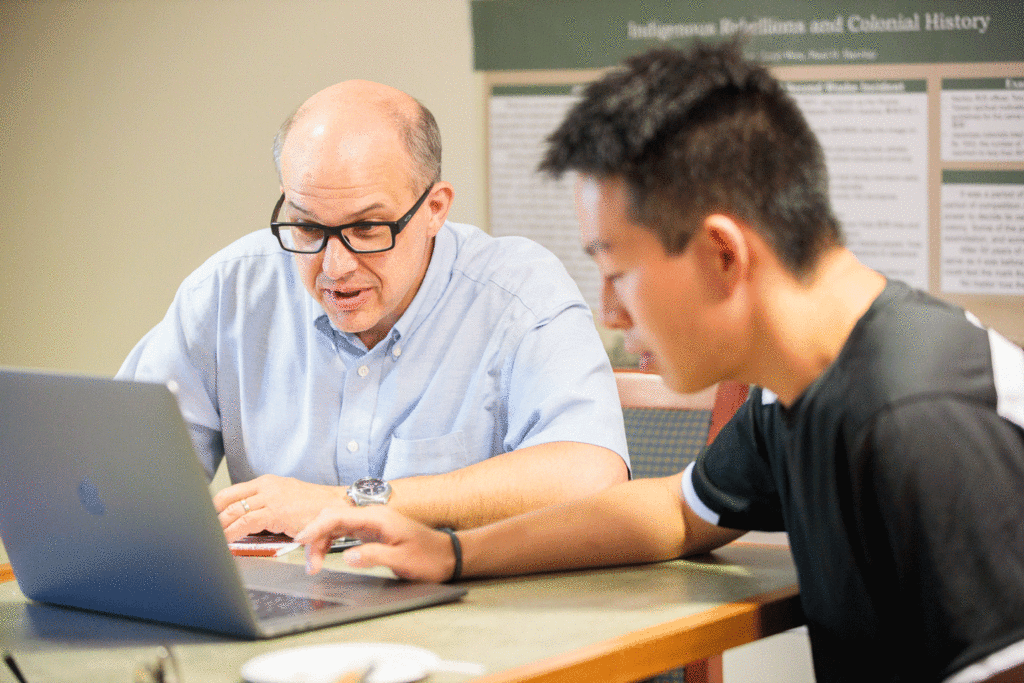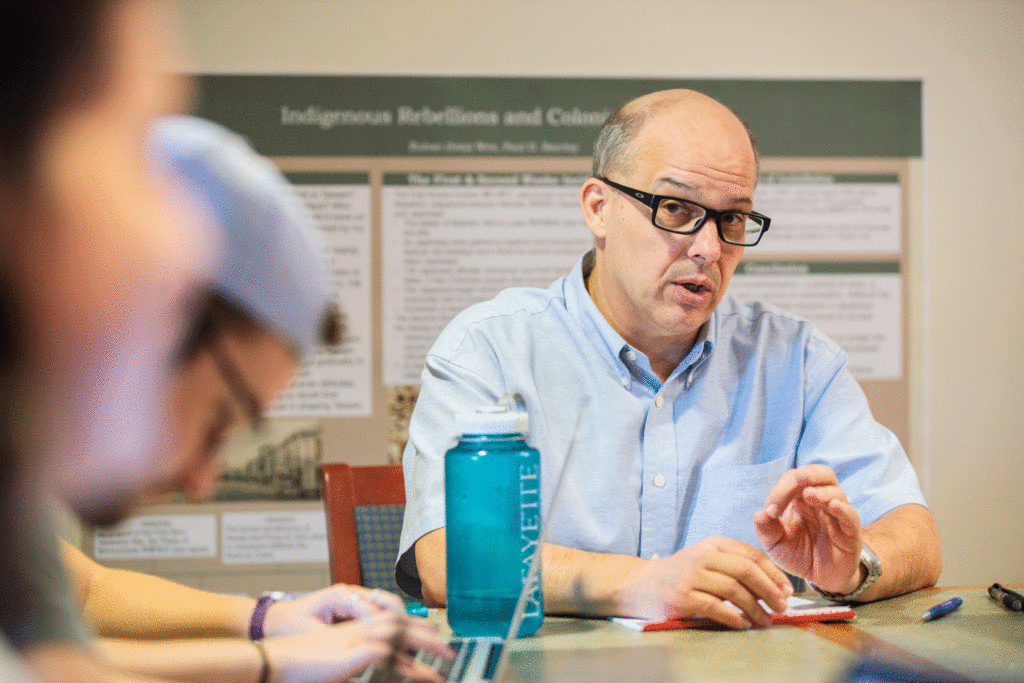Prof. Paul Barclay is first Adviser of the Year
By Dave Block ’93
As he sat down in Skillman Cafe with Paul Barclay for their first conversation together, Ren Makino ’20 confided to the professor and head of the History Department that he wanted to be a bridge that connected the United States and his home country of Japan. Barclay responded to the first-year student that he didn’t necessarily have to serve as a bridge, but could think of himself as a truck that brings information from one place to another.
This insight strongly guided Makino in his academic pursuit at Lafayette, where he decided to major in international affairs. When he took a leave of absence after his first year, Makino returned for the spring semester filled with anxiety. As his academic adviser, Barclay helped ease Makino back into college life and allowed him to take a capstone course with him even though he was just a sophomore.
“This is when I started to take academics seriously, and the topics I explored in my capstone paper have become important parts of my senior thesis,” says Makino.
Barclay guided the student through working as an EXCEL Scholar, conducting an independent study as a junior, and completing his graduation requirements in 3.5 years. He also helped connect Makino with other professors.
“Professor Barclay has made me feel included in the Lafayette community,” Makino adds. “… Feeling included as a first-generation Japanese-American has meant a lot to me … Professor Barclay upholds the core values of caring, commitment, empowerment, inclusivity, integrity, professionalism, and respect.”
His positive impact on a number of students has led Barclay to receive Lafayette’s first Adviser of the Year award as determined by a committee in the Office of Advising that reviewed more than 40 nominations from students.

For Barclay, the best part about being an adviser is the opportunity to draw upon his decades of life experience as a student, teacher, and employee to help students think a couple of steps ahead.
“The pressing academic, social, and practical demands of college life come wrapped in lots of externally and internally imposed expectations—not all of them helpful,” he says. “For some students, the competing demands are hard to juggle, because they often view their undergraduate education as a sprint, whereas I can see it more as a marathon, or even a journey. I can’t tell students what to study, or which careers to embark upon, but I can help them to clarify their thinking about these matters, as someone who has worked with many previous cohorts of students and has seen that they all turn out fine, even if they all turn out differently. These kinds of discussions are open-ended and often turn philosophical. In that regard, advising is a special kind of venue for teaching, one that is extremely fulfilling.”
Amy Wen ‘20 felt lost and confused about her academic goals until she had classes with Barclay during her sophomore year.
“I can still recall clearly what I learned in those classes, showing how influential they have been in my academic life,” she says. “Before sophomore year, I found myself getting less interested in studying history and wanted to find another academic direction. It was Professor Barclay who changed me.”
When Amaya Escandon ‘22 transferred to Lafayette this year, Barclay helped her feel at home in the History Department from the first day they met.
“He’s so easy to talk to, and I’ve been able to develop a good relationship with him even without having been in any of his classes,” she says. “He reminds me to not take myself too seriously while also encouraging me to be my best.”

Barclay advises many Asian studies and history majors as well as undeclared majors who are leaning toward a social science.
“In that role, learning how to listen and let the student set the agenda, while doing one’s best to keep the discussion moving in a direction that will produce useful advice, seems important,” he says. “Some meetings with advisees won’t produce action items, but they might help a student feel heard, or at least create a human connection to the institution. Other meetings are targeted and geared towards practical advice about majors and CCS requirements. In a word, I guess having an open mind is a good start.”